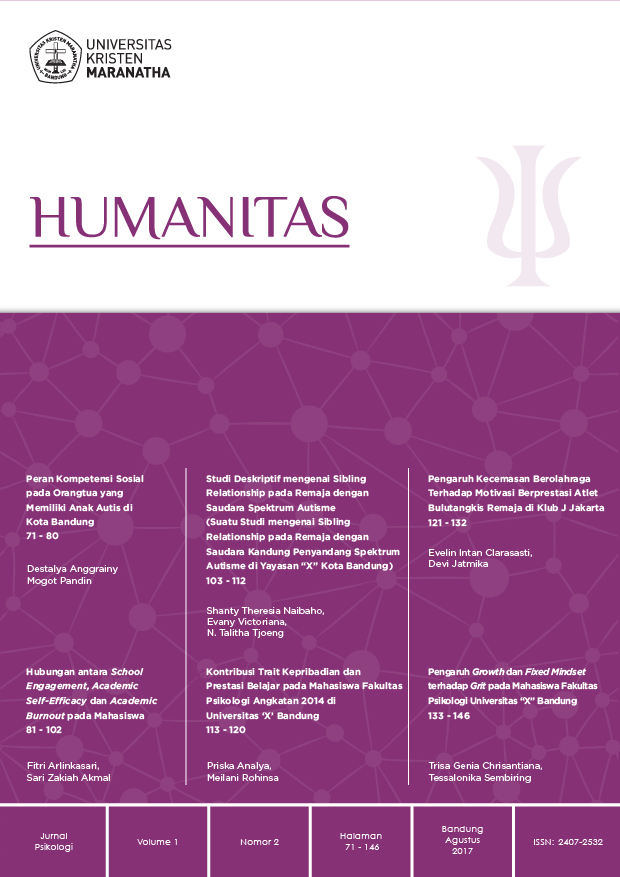Hubungan antara School Engagement, Academic Self-Efficacy dan Academic Burnout pada Mahasiswa
Main Article Content
Abstract
Inability to deal efficiently with lectures leads students vulnerable to academic burnout. Burnout contributes to the high dropout rate among students, and this phenomenon has occurred on several universities in Indonesia. To overcome these problems, students should generate the feelings, attitudes and positive attitude towards the academic demands, or known as school engagement. School engagement is a predictor of students’ dropout rate. This study aims to analyze the dropout problem in many private universities in Jakarta by examining the psychological variables: school engagement, academic self-efficacy, and academic burnout. Two hundred and eight students from several private universities in Jakarta participated and fulfilled three questionnaires: school engagement, academic self-efficacy, and academic burnout that have been modified to suit the college setting. The results of this study indicate that the three variables are significantly correlated. Academic burnout is negatively correlated with academic self-efficacy and school engagement. Thus, increased academic self-efficacy and school engagement play a role in reducing student academic burnout. Furthermore, academic self-efficacy and school engagement show a positive correlation, which means, the increase of school-engagement on students can predict an increase in their academic self-efficacy. The findings in this study can be used as a reference in student academic counseling to reduce the dropout rate of students.
Downloads
Download data is not yet available.
Article Details
How to Cite
Arlinkasari, F., & Akmal, S. Z. (2017). Hubungan antara School Engagement, Academic Self-Efficacy dan Academic Burnout pada Mahasiswa. Humanitas (Jurnal Psikologi), 1(2), 81–102. https://doi.org/10.28932/humanitas.v1i2.418
Issue
Section
Articles

